Backyard Chickens: A Step-by-Step Guide for First-Timers
- February 28, 2024
- 2 comment
Beginning the process of raising chickens in our backyard has been an incredibly insightful experience for me. This undertaking goes beyond the simple pleasure of gathering fresh eggs every morning. It includes a range of emotions and experiences, from the joy of daily interactions with the chickens to the various challenges that arise from their care, as well as the numerous learning moments that occur along the way.
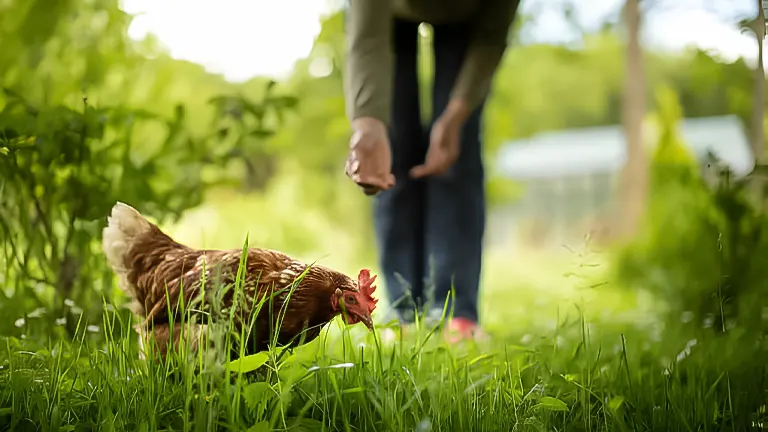
My Chicken Coop also and I didn’t start this journey with a wealth of knowledge or expertise in poultry care. Instead, we were driven by a strong passion to learn everything we could about the process and to share our findings with others. We approached this venture with open minds, ready to absorb all the information we could, and to tackle the inevitable challenges head-on.
List of The Ultimate Beginner’s Guide to Backyard Chickens:
- Check Local Regulations
- Choosing the Right Coop
- Coop Location and Setup
- Daily and Periodic Maintenance
- Feeding and Care
- Choosing Your Chickens
- Managing Expectations
Throughout this journey, we’ve encountered several unexpected lessons, from understanding the specific needs of our chickens to the intricacies of coop construction and maintenance. We’ve learned the importance of creating a safe and comfortable environment for our chickens, one that protects them from predators and harsh weather conditions while also giving them ample space to roam and exhibit natural behaviors.
We’ve also delved into the nutritional aspects of chicken care, discovering the best types of feed to ensure our chickens are healthy, happy, and productive. The process of collecting and managing eggs has taught us not only about the physical care of the chickens but also about the cycle of life and the responsibility of stewardship.
7 Steps For Ultimate Beginner’s Guide In Backyard Chicken
Step 1: Check Local Regulations
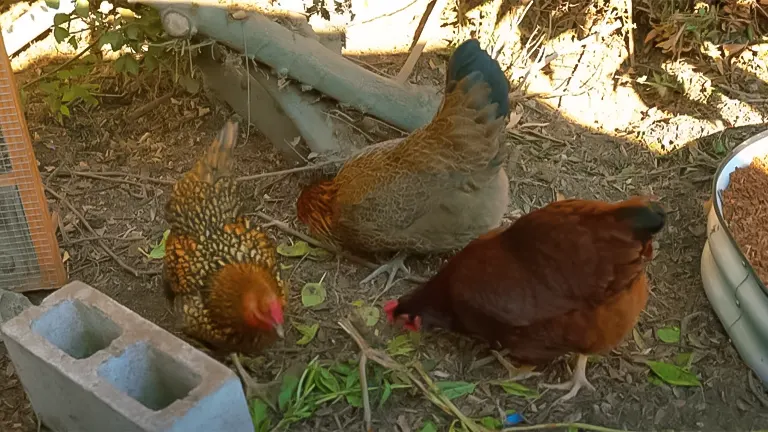
Before you dream of your flock, ensure you’re allowed to keep chickens in your city. Many areas have specific regulations regarding the number of chickens, the presence of roosters, and coop placement. It’s crucial to navigate these rules to avoid any unwelcome surprises after you’ve set your heart on your feathered friends.
Step 2: Choosing the Right Coop
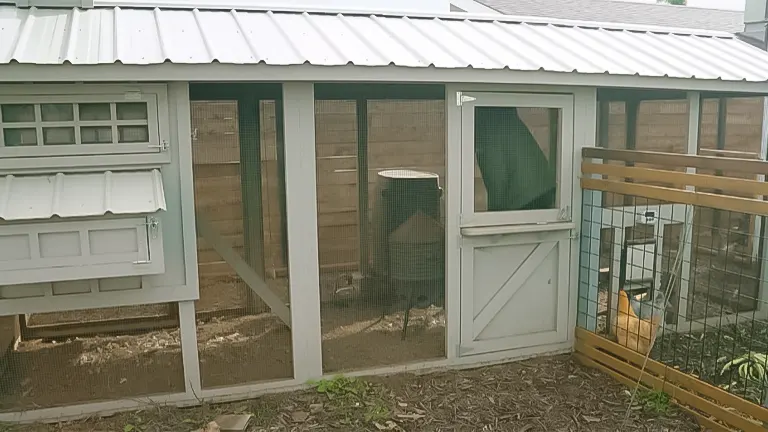
The coop is your chickens’ sanctuary. While the market offers a range of options, from budget-friendly to deluxe predator-proof coops, Jacques and I leaned towards DIY, using reclaimed wood and innovative design to build a comfortable, secure home for our hens. Remember, the key to a happy flock is not just a sturdy coop but one that’s also spacious and conducive to their well-being.
Step 3: Coop Location and Setup
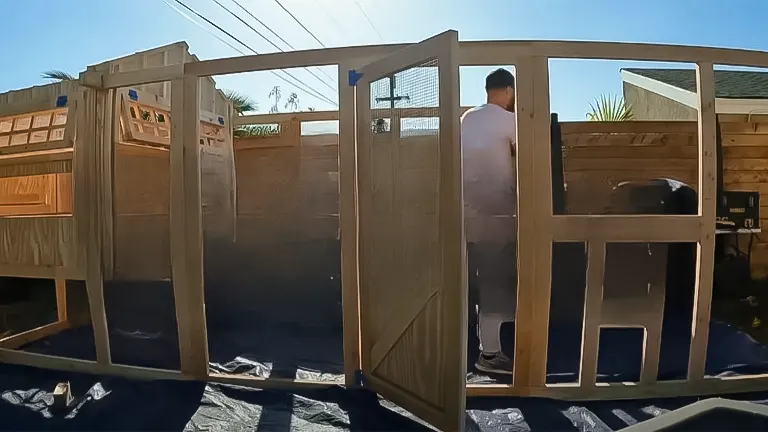
Location is paramount. Elevate the coop to prevent dampness and provide an additional area for your chickens to roam. Inside, focus on a deep litter method for cleanliness and odor control, ensuring a high roost bar for comfort. Most importantly, reinforce your coop with hardware cloth instead of chicken wire to protect against predators.
Step 4: Daily and Periodic Maintenance
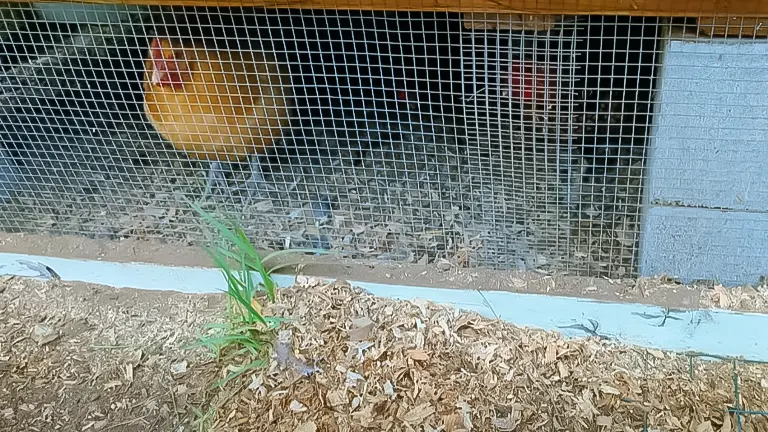
Chickens require a routine check for eggs to prevent any from developing a taste for them. Regular cleaning and maintenance of the coop, including a semi-annual deep clean, keep the environment healthy. Utilizing the spent bedding for compost enriches your garden, turning waste into gold.
Step 5: Feeding and Care
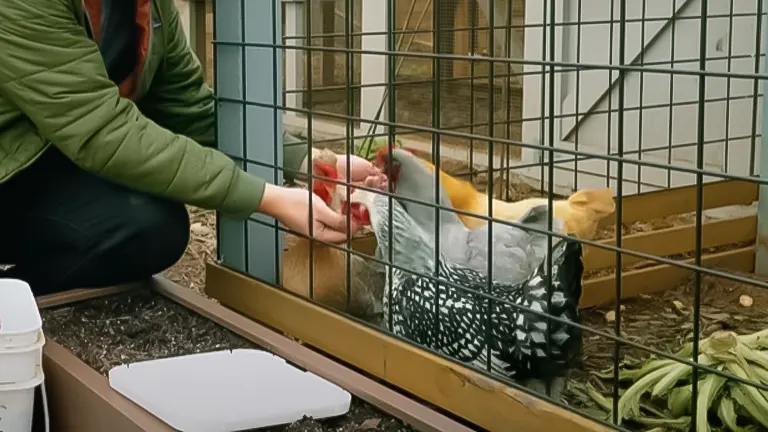
Despite the common notion, caring for chickens isn’t overly time-consuming. A balanced diet, clean water, and occasional treats keep them healthy and happy. It’s essential to be vigilant about health issues, such as parasites, and to have a plan for veterinary care when needed.
Step 6: Choosing Your Chickens
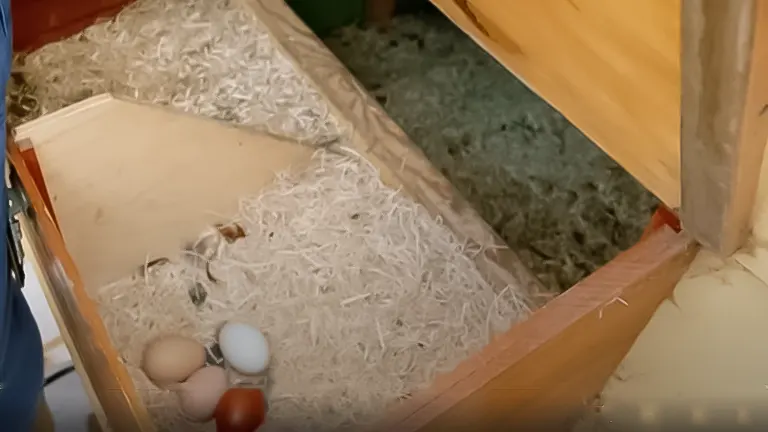
When starting, you have three options: eggs, chicks, or mature pullets. We opted for chicks to foster familiarity and trust. Select breeds not just for their egg-laying capabilities but also for their temperament and adaptability to your climate.
Step 7: Managing Expectations
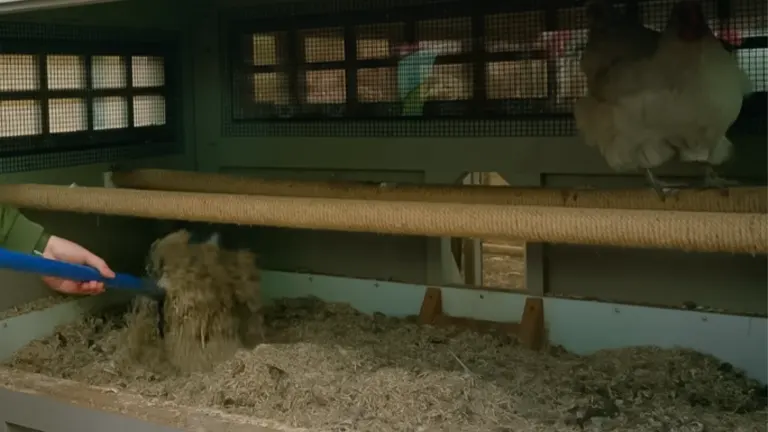
It’s vital to temper expectations with reality. Not all breeds lay eggs daily, and egg production wanes with age. Moreover, chickens can live up to 10 years, requiring a long-term commitment beyond their peak productive years.
Additional Tips for Keeping Chicken in a Backyard
- Predator Proofing: Ensure your coop and run are fortified against predators. This includes securing the coop with hardware cloth instead of chicken wire, burying it underground to prevent digging predators, and installing locks on doors and nesting boxes.
- Proper Feeding and Nutrition: Supply your chickens with a balanced diet suitable for their age and purpose (laying hens vs. meat chickens). Incorporate a mix of commercial feed, grains, vegetables, and occasional treats to keep them healthy and productive.
- Health and Hygiene: Regularly clean the coop and provide fresh bedding to maintain a sanitary environment. Learn to recognize signs of illness and pests, and have a plan for veterinary care if needed. Prevention is key, so keep vaccinations and parasite control up to date.
- Environmental Enrichment: Chickens benefit from stimulation to prevent boredom and promote natural behaviors. This can include providing perches, dust baths, and safe foraging areas. Rotate toys or hanging treats like cabbage and corn to keep them engaged.
Reflections on Chicken Keeping
In the course of my chicken keeping journey, I’ve come to realize that the true value of this endeavor extends far beyond the potential economic benefits of not having to buy eggs. It’s an enriching experience that deepens one’s connection with nature and provides immense satisfaction from caring for these animals. The joy derived from witnessing their behaviors, coupled with the unparalleled taste of eggs fresh from one’s own backyard, adds a unique dimension to daily life.
Chicken keeping becomes more than just a hobby; it is a profound commitment that imparts valuable lessons on sustainability, responsibility, and the natural cycle of life. This practice encourages a lifestyle that is more attuned to the rhythms of the natural world, offering insights into the interconnectedness of our environment and the food we consume.
Final Thoughts
As we conclude this discussion on embarking upon the journey of backyard chicken keeping, it’s essential to underscore that thorough preparation, continuous education, and a willingness to put in the necessary effort form the cornerstone of a successful endeavor. While the path to raising chickens may present its fair share of challenges, from ensuring their health and safety to maintaining their living environment, the rewards you reap will be profoundly satisfying.
The tangible benefits of fresh eggs and the intangible joys of connecting with these fascinating creatures and learning from them are unparalleled. By welcoming chickens into your backyard, you’re not just acquiring pets or a food source; you’re joining a community of like-minded individuals who appreciate the simpler, yet deeply fulfilling aspects of life. Welcome to the flock, where the journey is as rewarding as the destination.
Frequently Asked Questions
- What basic needs do backyard chickens have?
Chickens require shelter, food, water, and space to roam. A secure coop is essential for protection against predators and harsh weather, alongside a balanced diet, fresh water daily, and adequate space for natural behaviors. - How much space do I need for backyard chickens?
The amount of space needed depends on the number of chickens you plan to keep. Generally, each chicken needs about 2-3 square feet inside the coop and 8-10 square feet in an outdoor run. - What should I feed my chickens?
Chickens thrive on a diet of commercially available chicken feed, supplemented with vegetables, fruits, and grains. Avoid feeding them harmful foods like chocolate, avocado, and raw beans. - How do I protect my chickens from predators?
Secure the coop with hardware cloth, ensure it’s fully enclosed, and consider automatic doors for added security. Regularly inspect the coop for potential weak spots. - How often do chickens lay eggs, and what affects their laying patterns?
Most hens lay an egg every 24-26 hours, with laying patterns influenced by factors such as breed, age, daylight hours, and nutrition. - Do I need a rooster for my hens to lay eggs?
No, hens will lay eggs without a rooster. Roosters are only necessary if you want fertilized eggs for hatching. - How do I keep my chicken coop clean?
Regular cleaning involves removing waste, refreshing the bedding, and ensuring the coop is dry and well-ventilated. Deep clean the coop every few months or as needed. - Can I keep chickens if I live in the city?
Many urban areas allow backyard chickens, but it’s important to check local regulations regarding the number of chickens allowed and whether roosters are permitted. - What common health issues should I watch for in my chickens?
Monitor for signs of respiratory problems, parasites, and behavior changes. Regular check-ups and maintaining a clean environment can prevent many health issues. - How do I introduce new chickens to my flock?
Quarantine new arrivals for at least 30 days to monitor health. Introduce them gradually to the existing flock in a neutral space to minimize stress and aggression.
We can’t wait to hear from you! Join the conversation by recounting your personal experiences and wisdom on beginning your backyard chicken journey, all sparked by ‘The Ultimate Beginner’s Guide to Backyard Chickens: From Curiosity to Coop.’ Your stories and advice are invaluable to others venturing into the world of chicken care. Share your insights in the comments section below, and let’s collectively support each other in nurturing our backyard flocks!

Edward Smith
Forestry AuthorWoodworking is about more than crafting; it's a harmonious connection with nature, mastering tools, and preserving our environment. I'm here to share my knowledge and experiences with you, forging a future where we can embrace wood's beauty and utility while safeguarding our forests' health and diversity.
2 comments
Would llke to try this project as a retiree.




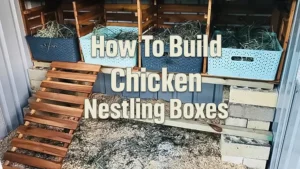








Thanks for posting the "Beginners Guide...." It's something I've wanted to do for several years now. Next project coming up.
Mike Lindsay
March 2, 2024 4:02 pm